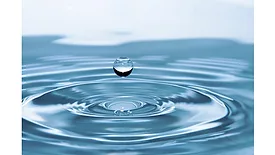Home » Keywords: » EPA
Items Tagged with 'EPA'
ARTICLES
Guard on Compliance | Misty Guard
Proposed adjustments could ease reporting requirements while maintaining oversight of high-risk substances.
Read More
Plumbing industry wholeheartedly backs WaterSense program
WaterSense has helped consumers save an estimated 4.4 trillion gallons of water since 2006.
October 7, 2020
PMI urges EPA to preserve WaterSense program
WaterSense is slated for elimination under EPA's proposed budget
April 20, 2017
PMI signs coalition letter in support of WaterSense Bill
PMI joined 11 other members of the Plumbing Industry Leadership Coalition on a letter to the Senate.
May 23, 2014
Keep your content unclogged with our newsletters!
Stay in the know on the latest plumbing & piping industry trends.
JOIN TODAY!Copyright ©2026. All Rights Reserved BNP Media.
Design, CMS, Hosting & Web Development :: ePublishing










